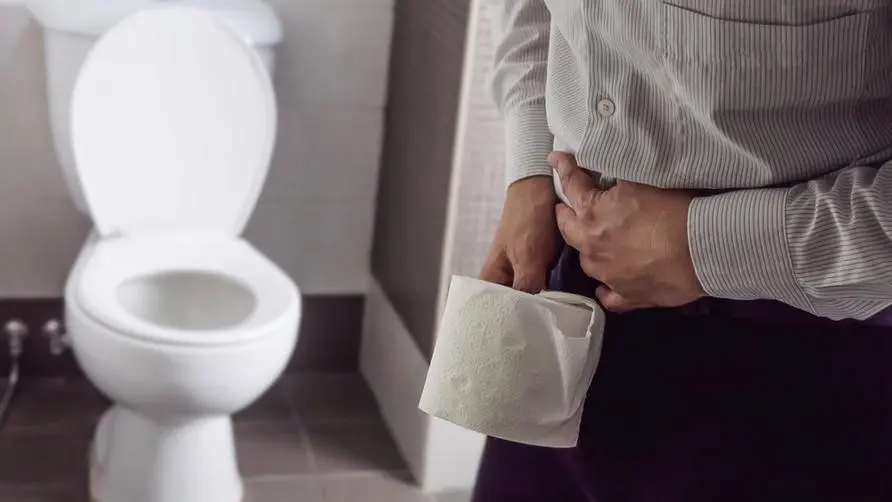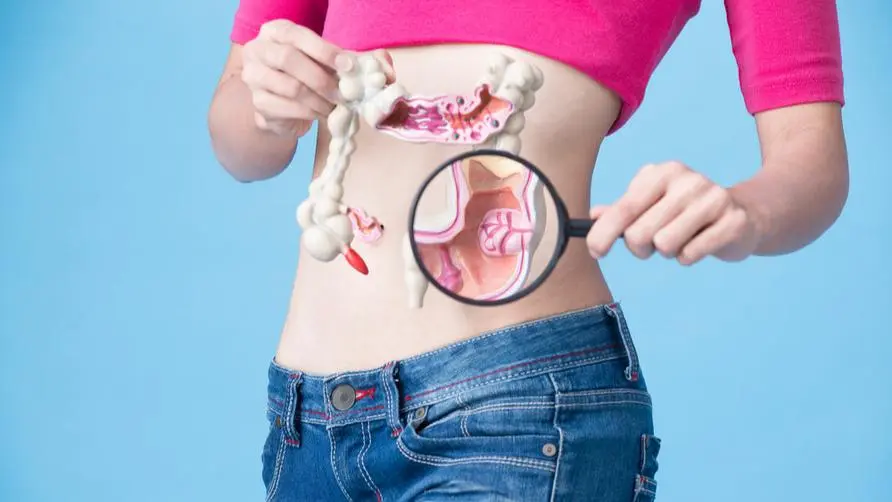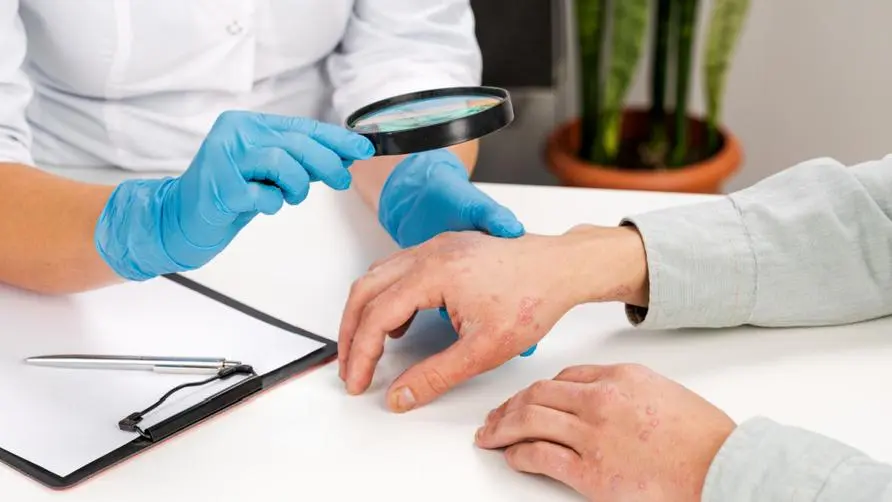Stress can cause ulcerative colitis to explode! She had diarrhea and had to sit on the toilet to eat

The prevalence of ulcerative colitis has increased fivefold! She has diarrhea every day and has to sit on the toilet to eat
Young men and women should seek medical treatment immediately if they notice abnormal bowel habits, diarrhea, bloody stools, fever, or weight loss. In addition to possible irritable bowel syndrome, they should also be careful of the chronic inflammation of ulcerative colitis. A woman started having severe diarrhea when she was 20 years old and even had bloody stools multiple times a day. She was hospitalized for more than a month before she was diagnosed with ulcerative colitis. Because she gets diarrhea whenever she eats, she can only eat while sitting on the toilet, which seriously affects her quality of life.
Dr. Wang Hongyuan, chairman of the Taiwan Inflammatory Bowel Disease Society, said that ulcerative colitis is a type of inflammatory bowel disease. In recent years, the prevalence rate in Taiwan has increased significantly by 5.1 times. It is speculated that it is related to the westernization of diet, especially high fat and high sugar. associated with increased food intake.
In addition, intestinal flora, environmental factors, and immune factors may affect the pathogenesis of ulcerative colitis. If ulcerative colon cancer is not properly treated, it may increase the risk of comorbidities and bowel cancer. We call on the public to raise awareness of the disease.
What is ulcerative colitis? Can a stressful event cause an outburst?
Dr. Wang Hongyuan said that ulcerative colitis is an overreaction and misidentification of the immune system, leading to excessive and persistent inflammatory response in the intestines. The direct cause of the disease is not clear, but it is related to diet, intestinal bacteria, stress, genes and immune mechanisms. Especially in the face of certain stressful events, patients may suffer from acute attacks.
Dr. Wang Hongyuan pointed out that ulcerative colitis tends to occur in young and middle-aged adults, with the median age of onset being 44.86 years old. When severe, it can easily lead to the inability to work and go to school, causing great pressure on patients. Once diarrhea persists for three months, you should seek medical diagnosis as soon as possible.
What are the signs of ulcerative colitis? Pay attention to eye and joint inflammation
How to distinguish ulcerative colitis from irritable bowel syndrome and constipation? Dr. Wang Hongyuan explained that the symptoms of ulcerative colitis include persistent diarrhea, abdominal pain, bloody stools, and inability to clear stools. Due to the narrow intestinal wall, some patients may also experience constipation. Be alert if you have abdominal pain, diarrhea with bloody stools, or weight loss for 3 consecutive months.
In addition, ulcerative colitis is related to immune mechanism, and patients may have extraintestinal symptoms, such as scleritis and uveitis in the eyes; arthritis and rheumatoid arthritis in the joints; and erythema nodosum on the skin. , pyoderma gangrenosum, psoriasis, etc. And extraintestinal symptoms may occur earlier than diagnosis.
Dr. Wang Hongyuan said that ulcerative colitis mainly invades the mucosa of the large intestine and causes inflammation. Some patients have not serious symptoms, but in fact the intestinal mucosa has been invaded quite severely. It is necessary to diagnose early through endoscopy or even pathological biopsy. Ulcerative colitis. Doctors remind that a severe attack of ulcerative colitis may cause large amounts of bloody stools or even death. Do not ignore it if you have similar symptoms.
What are the treatments for ulcerative colitis? Biologics reduce risk of bowel resection
Dr. Li Baixian, associate professor of the Department of Gastroenterology and Hepatobiliary Surgery at Linkou Chang Gung Memorial Hospital, said that about 44% of ulcerative colitis patients will have persistent chronic repeated inflammation, leading to worsening of the disease. Some patients have diarrhea more than ten or twenty times a day and need to wear diapers to live a normal life. . Prolonged inflammation will also increase stenosis and perforation, and the probability of requiring surgery will become higher and higher.
Dr. Li Boxian explained that there are many treatments for ulcerative colitis, including traditional anti-inflammatory drugs, steroids, immunomodulatory drugs, and biologic treatments suitable for moderate to severe patients. Biological agents can inhibit specific inflammatory factors and effectively reduce the risk of requiring large bowel resection in patients with ulcerative colitis. There are various methods and frequencies of injections, so you can discuss the treatment method that suits you with your doctor.
Can ulcerative colitis turn into colorectal cancer? Treatment goal is mucosal healing
Dr. Li Boxian pointed out that if something goes wrong in the process of repeated inflammation and repair of intestinal mucosal cells, it is easy to increase the risk of cancer. A 35-year-old baker once suffered from ulcerative colitis for 15 years. Because it was not properly controlled, a large amount of bloody stool was discovered in the end. Already have advanced tumors.
Dr. Li Boxian said that the current treatment goal for ulcerative colitis is to track the patient’s mucosal healing through colonoscopy. Every 1-point decrease in the section inflammation index can reduce the risk of bowel cancer by 1.69 times. Young adults aged 20 to 40 years old are reminded that if they have abnormal bowel movements, bloody stools, anemia, weight loss, or fever, they must receive an early diagnosis. If they have ulcerative colitis, they should be treated appropriately to achieve mucosal healing in order to reduce the risk of recurrence and bowel cancer.
Further reading:





